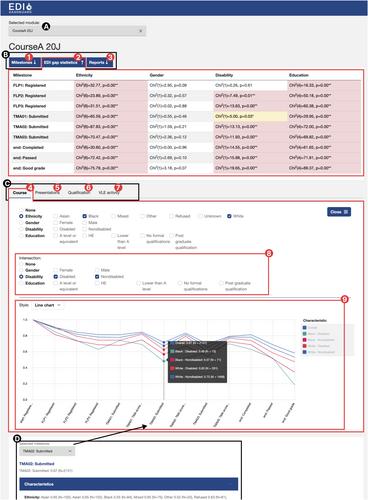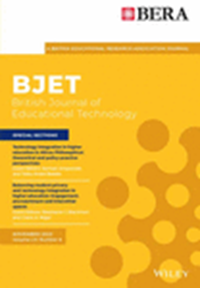Co-creating an equality diversity and inclusion learning analytics dashboard for addressing awarding gaps in higher education
Abstract
Educational outcomes from traditionally underrepresented groups are generally worse than for their more advantaged peers. This problem is typically known as the awarding gap (we use the term awarding gap over ‘attainment gap’ as attainment places the responsibility on students to attain at equal levels) and continues to pose a challenge for educational systems across the world. While Learning Analytics (LA) dashboards help identify patterns contributing to the awarding gap, they often lack stakeholder involvement, offering very little support to institutional Equality, Diversity and Inclusion (EDI) leads or educators to pinpoint and address these gaps. This paper introduces an innovative EDI LA dashboard, co-created with diverse stakeholders. Rigorously evaluated, the dashboard provides fine-grained insights and course-level analysis, empowering institutions to effectively address awarding gaps and contribute to a diverse and inclusive higher education landscape.
Practitioners notes
What is already known about this topic
- Traditionally underrepresented groups face educational disparities, commonly known as the awarding gap.
- Underachievement is a complex multi-dimensional problem and cannot be solely attributable to individual student deficiencies.
- LA dashboards targeting this specific problem are often not public, there is little research about them, and are frequently designed with little involvement of educational stakeholders.
What this paper adds
- Pioneers the introduction of a dashboard specifically designed to address the awarding gap problem.
- Emphasises the significant data needs of educational stakeholders in tackling awarding gaps.
- Expands the design dimensions of Learning Analytics (LA) by introducing a specific design approach rooted in established user experience (UX) design methods.
Implications for practice and/or policy
- Insights from this study will guide practitioners, designers, and developers in creating AI-based educational systems to effectively target the awarding gap problem.



 求助内容:
求助内容: 应助结果提醒方式:
应助结果提醒方式:


